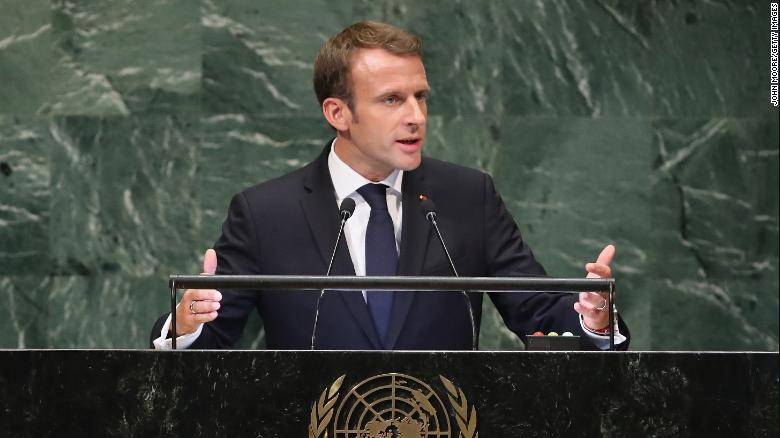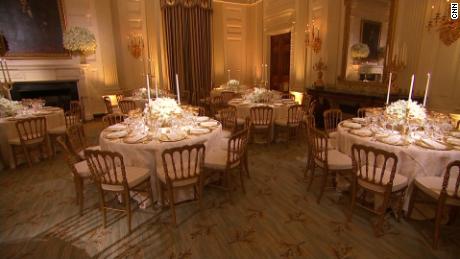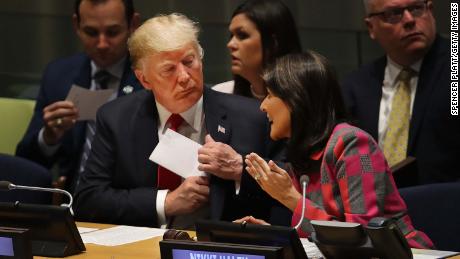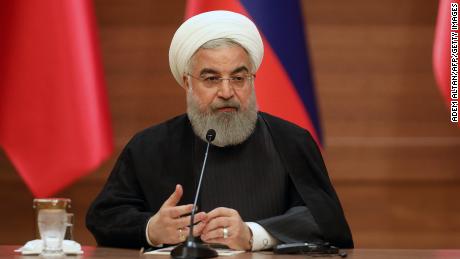New York (CNN)French President Emmanuel Macron delivered a fiery rebuke of US policies under President Donald Trump at the UN General Assembly Tuesday, signaling that he is ready to take up the mantle of global leadership usually assumed by a US leader.
At times directly referring to the US, Macron rapped the Trump administration for its policies on Iran, climate change, the UN, migration and Mideast peace, among others.
The 40-year-old French leader also took direct aim at the central theme of Trump's speech earlier in the day, in which the US President focused on sovereignty and emphasized his administration's intent to distance itself from international agreements and groups.
"I shall never stop upholding the principal of sovereignty," Macron told the General Assembly, which draws more than 120 world leaders each year. "Even in the face of certain nationalism which we're seeing today, brandishing sovereignty as a way of attacking others."
But unlike Trump's emphasis on the importance of countries' independence, Macron offered a different vision, one that earned him sustained applause when he was done.
"Only collective action allows for the upholding of the sovereignty and equality of the people in whose name we take action," Macron said. "This is the reason we must take action against climate, demographic and digital challenges. No one alone can tackle these."
Macron began by telling the assembly that the world order based on sovereignty and equality among nations that came into being in the 1600s was facing a "far-reaching crisis," and said the answer lay in cooperation and collaboration among nations.
"Nationalism always leads to defeat," said Macron, who couched his remarks in the historical context of Europe's world wars. "If courage is lacking in the defense of fundamental principles, international order becomes fragile and this can lead as we have already seen twice, to global war. We saw that with our very own eyes."
As the US launches trade wars and turns its back on regional trade pacts in favor of deals with single countries, Macron pointedly said, "bilateral agreements, new protectionisms, will not work."
As he listed global challenges, he both critiqued the Trump administration's approach and offered his counterargument, mentioning early on the importance of the United Nations.
"At a time when our collective system is falling apart, it is most in demand," Macron said. "We shall support those working for peace and humanity," he said and then mentioned several arms of the UN that the Trump administration has stopped funding, criticized or withdrawn from, including UNESCO, the organization devoted to cultural preservation, the UN human rights council, the International Criminal Court and the agency that supports health and education for Palestinian refugees in the near east.
"The idea, here at the end of the day, is allowing thousands of children to go to school," Macron said of the UN Relief and Works Agency. "That's it."
Macron touched on the 2015 Iran nuclear pact that eased sanctions on Iran in exchange for limits on its nuclear program. In May, the Trump administration withdrew from the deal, which Europe has fought hard to maintain along with Russia and China.
"How will we solve the situation in Iran and what has already allowed us to make progress," he asked. "Was it the power of the very few or the strongest? No."
Macron then moved to the ongoing conflict between Israelis and Palestinians with apparent references to policies Trump has pursued.
Trump relocated the US embassy in Israel from Tel Aviv to Jerusalem, a step the international community widely believes should be left to final negotiations of a peace agreement, as the city is contested. "What will solve the crisis between Israel and Palestine," Macron asked. "Well surely not unilateral initiatives."
Trump has yet to unequivocally endorse a two-state solution, saying he is willing to back such a plan if that's what the parties want. Macron told the assembly that "there is no credible alternative to the two-state solution."
Macron seemed to target the increasing efforts by the Trump administration and certain European countries to restrict legal and illegal immigration when he mentioned people who believe that they would be "stronger were we to close our borders." He added, "that's not true either," arguing instead for a broad effort to manage migration flows.
He saved perhaps his toughest words for the issue of climate change, which France has made a signature cause. The Trump administration backed out of the Paris Climate Agreement, making it the only country in the world that has rejected the pact, and has loosened domestic environmental regulations.
"Here there can be no short change," Macron declared, adding that even "those who deny it" are suffering the consequences. "In refusing collective actions certain individuals only make themselves more vulnerable," the French leader said.
Macron praised the countries in the deal for keeping the Paris agreement intact "because we have decided to stay unified despite the US decision to withdraw. This is power and this is the way to overcome challenges." And he issued a suggestion to leverage that unity.
"Let's stop signing trade agreements with those who don't comply with the Paris agreement," Macron said.
Acknowledging that many might be tired of the challenges of collaborative work, Macron urged the countries gathered for the General Assembly to carry on.
"Do not accept the erosion of multilateralism," Macron said. "Don't accept our history unraveling, I'm not getting used to it and I'm not turning my head," he said. "That is my commitment to you and I count on you."






















